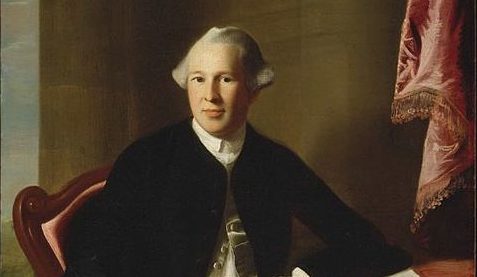Joseph Warren is known for his role in the early days of the rebellion and for his death at Bunker Hill. He also served as a key player in the Suffolk Resolves, Committee of Correspondence, and The Midnight Ride, in which he sent Paul Revere and William Dawes to warn John Hancock and Samuel Adams, and he led militia with William Heath in the Battles of Lexington and Concord. He was a well-known figure in Boston and well-connected. David Hackett Fischer made a compelling argument in his book, Paul Revere's Ride, that Warren's secret friendship with Margaret Kemble Gage gave him the intel needed to alarm the countryside of Gage's plan to disarm Concord.
Jump to:
Joseph Warren Facts: Early Life
Joseph Warren was born in Roxbury, Massachusetts Bay Colony. His father died while Joseph was still young, leaving him with just his mother. Soon, he began his schooling at Roxbury Latin School, where he would graduate and go to college at Harvard University. After graduating, he taught for about a year and married a young eighteen-year-old woman, Elizabeth Hooten, in 1764. she would die 8 years later, leaving him with 4 children. Even though he had lost much, Warren became an ardent patriot.
Warren was later appointed to the committee of correspondence. Each of the 13 original colonies had a committee of correspondence. These committees would communicate with each other and became vital during the revolution. It was when Warren served in this committee that he drafted the Suffolk Resolves. Although most Americans do not know what these resolves were, they were the forerunner of the more popular document, the Declaration of Independence. Warren would die before Thomas Jefferson penned the Declaration of Independence.
Joseph Warren Facts: American Revolutionary War

Dr. Warren was the leading figure when Thomas Gage was commander-in-chief in the colonies. When Gage mobilized his troops for a secret mission, it was Dr. Joseph Warren who learned of it first and sent his riders, William Dawes and Paul Revere, to warn John Hancock and Samuel Adams of the incoming British. During the Battles of Lexington and Concord, Dr. Warren led a group of militia while the British were retreating back to Boston.
Warren was commissioned as a Major General but served as a private in the Battle of Bunker Hill. During the battle, Warren bravely fought the British but was killed instantly by a British officer who recognized him. The British buried him in a hole with another. His death was mourned by his peers and celebrated by his enemies. Thomas Gage said that his death was worth 500 soldiers.
Once General George Washington dislodged the British from Boston, Paul Revere and some of Dr. Joseph Warren's family moved his body from the first site to Granary Burying Grounds and then eventually placed him in Forest Hills Cemetery, where he rests this day.
Joseph Warren Facts: Online Resources
- Wikipedia - Joseph Warren
- National Park Service - Joseph Warren
- New England Historical Society - Joseph Warren Death
- Find a Grave - Joseph Warren
- The History Junkie's Guide to Colonial America
- The History Junkie's Guide to American Revolutionary War
- The History Junkie's Guide to Battle of Bunker Hill
